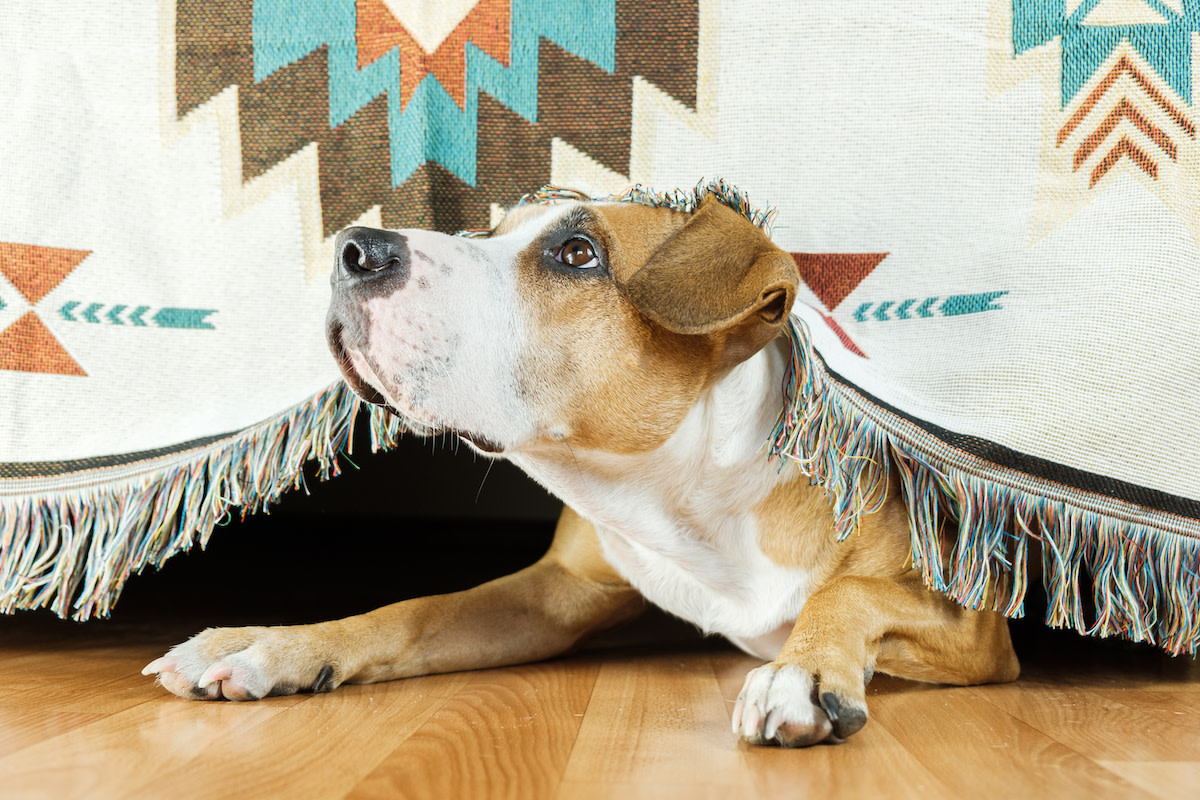Submissive Urination: How to Curb Submissive Urination in Dogs
Written by MasterClass
Last updated: Jun 13, 2022 • 4 min read
In dogs of any age, submissive urination is a behavioral response to stress, fear, and anxiety. Luckily, it’s possible to overcome this behavior with proper training.
Learn From the Best
What Is Submissive Urination?
Submissive urination is a behavioral issue in which a canine urinates because they are afraid or anxious. This behavior stems from strong feelings of insecurity, which causes a dog to lose control of their bladder. Submissive urination is primarily related to fearfulness, though dogs may also urinate because they are excited (which is called excitement urination).
What Causes Submissive Urination?
There are many reasons that dogs may experience inappropriate urination, including medical conditions like urinary tract infections, separation anxiety, and a lack of housetraining. However, there are a few reasons your dog may be urinating submissively.
- 1. Past trauma or excessive scolding: Submissive urination often occurs in puppies who feel insecure or adult dogs who have experienced abuse. It can happen to any dog who has received punishment after having indoor potty accidents.
- 2. Lack of training or structure: Dogs who live in homes without stable expectations can feel stressed, peeing in response to that fear.
- 3. Feelings of shyness or anxiety: Some dogs may submissively urinate because they are naturally shy or anxious.
3 Signs of Submissive Urination
Your dog may be experiencing submissive urination if you observe the following signs.
- 1. Assuming submissive postures: If your dog assumes a submissive posture during an accident, this is likely a sign of submissive urination. Look for crouching, cowering, tail tucking, lowering heads, flattening ears, avoiding direct eye contact, or rolling over to expose their belly.
- 2. Urination upon greeting: Dogs who lose bladder control when a new person or dog greets them are likely experiencing submissive urination.
- 3. Urination at loud noises: Your dog may be experiencing submissive urination if a sound (like a loud argument, angry voices, or emergency sirens) triggers their urination.
How to Curb Submissive Urination
Follow these steps to help curb submissive urination in your pooch.
- 1. Visit the veterinarian. Submissive urination is a behavioral problem, but ruling out a medical condition may be wise if your dog has issues holding their bladder. Visit a veterinarian to address potential medical causes for your dog’s inappropriate urination.
- 2. Eliminate odors after an indoor accident. Even as you work to train your dog to correct their submissive urination, accidents will recur. Dogs habitually mark areas they’ve peed on before, so always clean carpets, wood floors, and tiled areas your pet has soiled. Wash everything you can, using enzyme cleaners to break down stubborn pet odors.
- 3. Work on potty training. Dogs can occasionally take a little longer to understand potty training. In addition to behavioral corrective measures, work on crate training your dog. Dogs naturally avoid soiling their den—or small crate—which will help them develop better bladder control.
- 4. Create a consistent routine. Creating consistent expectations is one of the most important things you can do for your dog. Feed and walk your dog at the same time every day, and ensure that your household members do the same.
- 5. Give your dog plenty of exercise. Take your dog on long walks or give them plenty of playtime outside. All dogs need lots of physical stimulation, which will keep them healthy.
- 6. Ask guests and housemates to ignore your dog initially. Fearful dogs most likely won’t be happy about strangers entering their personal space, no matter how positive their intentions. Ask people entering your home to ignore your dog, and allow your pup to approach guests and housemates on their own. Alternatively, they can choose to avoid people and lay in their kennel, tucked away where they feel safe.
- 7. Use positive reinforcement. Avoid scolding your dog, especially if they have a submissive urination problem, because it will make them more fearful. Instead, praise your dog whenever they urinate outside or do something correctly. Reward them with treats and playtime to encourage good work. Positive reinforcement builds canine confidence, helping to prevent future incidents of submissive urination.
- 8. Introduce dogs to new stimuli. Dogs need to experience new people and places to build confidence in unfamiliar situations, which can prevent submissive urination. Create positive experiences for your dog, like going for a walk and rewarding them when they approach people. Stand on the corner of a busy street with your dog and feed them treats as they stay calm.
- 9. Consider canine medication. Sometimes, dogs need to take medication to handle their anxiety. Speak to a veterinarian to see if this is a viable option for your dog.
- 10. Consult a dog trainer. Consider working with a dog trainer if your dog has a chronic submissive urination problem. They will be able to assess your dog’s unique issues and work toward changing their behavior.
Want to Learn More About Training the Goodest Boy or Girl?
Your dream of having a dog who understands words like “sit,” “stay,” “down,” and—crucially— “no” is just a MasterClass Annual Membership away. The only things you’ll need to train up a well-behaved pup are your laptop, a big bag of treats, and our exclusive instructional videos from superstar animal trainer Brandon McMillan.
